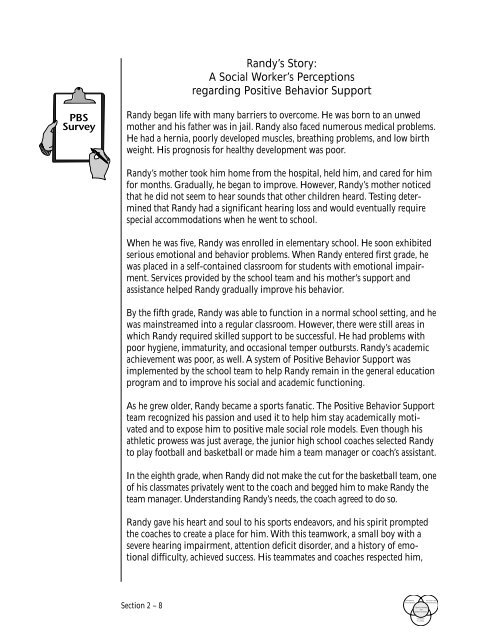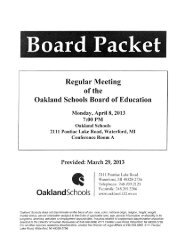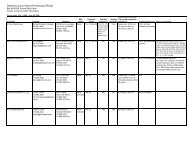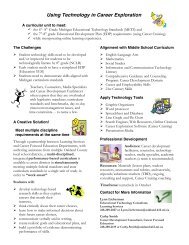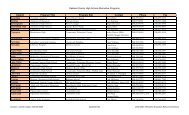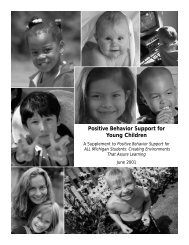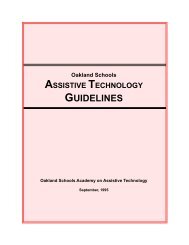Positive Behavior Support for ALL Michigan ... - Oakland Schools
Positive Behavior Support for ALL Michigan ... - Oakland Schools
Positive Behavior Support for ALL Michigan ... - Oakland Schools
You also want an ePaper? Increase the reach of your titles
YUMPU automatically turns print PDFs into web optimized ePapers that Google loves.
Randy’s Story:<br />
A Social Worker’s Perceptions<br />
regarding <strong>Positive</strong> <strong>Behavior</strong> <strong>Support</strong><br />
Randy began life with many barriers to overcome. He was born to an unwed<br />
mother and his father was in jail. Randy also faced numerous medical problems.<br />
He had a hernia, poorly developed muscles, breathing problems, and low birth<br />
weight. His prognosis <strong>for</strong> healthy development was poor.<br />
Randy’s mother took him home from the hospital, held him, and cared <strong>for</strong> him<br />
<strong>for</strong> months. Gradually, he began to improve. However, Randy’s mother noticed<br />
that he did not seem to hear sounds that other children heard. Testing determined<br />
that Randy had a significant hearing loss and would eventually require<br />
special accommodations when he went to school.<br />
When he was five, Randy was enrolled in elementary school. He soon exhibited<br />
serious emotional and behavior problems. When Randy entered first grade, he<br />
was placed in a self-contained classroom <strong>for</strong> students with emotional impairment.<br />
Services provided by the school team and his mother’s support and<br />
assistance helped Randy gradually improve his behavior.<br />
By the fifth grade, Randy was able to function in a normal school setting, and he<br />
was mainstreamed into a regular classroom. However, there were still areas in<br />
which Randy required skilled support to be successful. He had problems with<br />
poor hygiene, immaturity, and occasional temper outbursts. Randy’s academic<br />
achievement was poor, as well. A system of <strong>Positive</strong> <strong>Behavior</strong> <strong>Support</strong> was<br />
implemented by the school team to help Randy remain in the general education<br />
program and to improve his social and academic functioning.<br />
As he grew older, Randy became a sports fanatic. The <strong>Positive</strong> <strong>Behavior</strong> <strong>Support</strong><br />
team recognized his passion and used it to help him stay academically motivated<br />
and to expose him to positive male social role models. Even though his<br />
athletic prowess was just average, the junior high school coaches selected Randy<br />
to play football and basketball or made him a team manager or coach’s assistant.<br />
In the eighth grade, when Randy did not make the cut <strong>for</strong> the basketball team, one<br />
of his classmates privately went to the coach and begged him to make Randy the<br />
team manager. Understanding Randy’s needs, the coach agreed to do so.<br />
Randy gave his heart and soul to his sports endeavors, and his spirit prompted<br />
the coaches to create a place <strong>for</strong> him. With this teamwork, a small boy with a<br />
severe hearing impairment, attention deficit disorder, and a history of emotional<br />
difficulty, achieved success. His teammates and coaches respected him,<br />
Section 2 – 8


